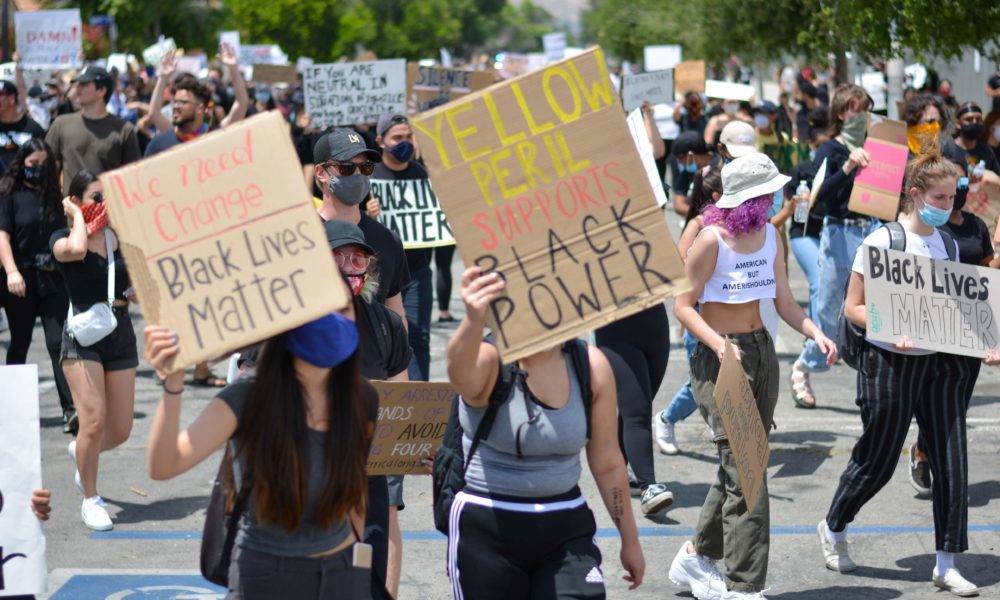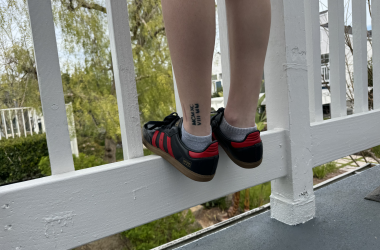Last semester, I was deep into my note-taking for my economics class while also watching Hasan Minhaj’s Netflix Special “Homecoming King” when I was startled in hearing him say the n-word out loud.
To be clear, Minhaj said it in the context of racial slurs that were thrown at him as a child including the specific epithet “sand n-word”.
I was still discomforted by his ease in claiming a word that didn’t belong to non-Black people of color. On a hunt for another perspective, I only found one post which addressed what I thought was a huge controversy. It was only published this past December and Minhaj’s special has been out since 2017.
So why did I choose to write about this now, during Black History Month? It’s because I think it’s high time that we, as the Asian American community, do some self-educating and take the burden off of our Black community.
This conversation is still relevant now in 2021 when just this past week, New York Times reporter Donald McNeil Jr., was revealed to have been reprimanded based on student complaints he had used “racial slurs” and “racist language” while leading a Times sponsored trip to Peru back in 2019.
Thinking back to high school, I still remember distinctly hearing teenage boys using the n-word to refer to each other. They were not Black, they were Asian. “Hey, n–. Pass the ball,” they would say to each other on the basketball court.
Jimmy Yang, a Chinese American comedian, encapsulates the awkwardness of holding these conversations about ownership of racial slurs in a joke where he asks his Black friend if he can sing along as the n-word comes up in a rap song.
His Black friend replies back, “‘Is it cool if I call you a ch-nk, a ching chong rice-eating motherf-cker?'”The crowd roars with laughter. Of course, the answer is no.
The n-word was used historically by whites as a derogatory term towards Blacks to dehumanize and further justify slavery and de jure, or Jim Crow, segregation. While we as a society have mainly come to a consensus that the word is “bad,” even censoring books like “The Adventures of Huckleberry Finn” and “To Kill a Mockingbird” in the classroom, the word still exists in pop culture in rap songs and colloquially in the Black community.
And perhaps the “untouchable” aspect of the word is what gives it a hardened edge and why for the Asian teenage boys at my high school, it was a way to exert their hyper-masculinity and athleticism on the court.
Ta-Nehisi Coates brilliantly breaks down the logic and reasoning to why certain words shouldn’t be used by certain demographics of people.
Context matters he says; his wife versus a stranger calling him “honey.” Drawing upon another example, he doesn’t join his wife when she and her friend call each other “bitch.”
My brother stopped making “that’s gay” jokes after I came out to him. On some level, he realized that these negative connotations surrounding non-heterosexual orientations were harmful towards me.
But it isn’t always easy to shift directions or hold critical conversations about the weight and meaning of words. This past summer during protests in support of Black Lives Matter, there was a business professor at the University of Southern California who was thrown into a controversy over his use of a Chinese word that sounded like the n-word.
I’ve heard of this before. Over dinner, a friend told our family a story of how she was one time sitting with her friends at a restaurant and they were talking excitedly to each other and pointing out the things on the menu they wanted to order. A Black patron nearby began to frown and glare at them. They didn’t understand why until they realized their use of the word 那個, which is nàgè or sometimes pronounced nèige in Mandarin, sounded a lot like a racial slur.
那個 is a commonly used phrase in Chinese meaning “that.” It’s a filler word when we don’t know what to say or an expression when we point to something. As someone who knows very elementary Chinese, it’s a phrase that I rely upon a lot when I’m trying to express directions or explain something in my broken speech.
There are also other phrases in foreign languages that sound like racial slurs, but I think what drew attention to this specific word in Mandarin was because of the heightened awareness brought on by the buzz surrounding the USC business professor.
Ryan Alexander Holmes, a biracial Black and Chinese actor who self identifies as Blasian, often speaks up about the anti-Blackness present within the Asian American community he has grown up in.
In a fifteen-second video, addressing the news about the USC professor, he arrives at the heart of the issue: a missed opportunity to educate and facilitate a conversation about culture and language.
And here is where I admit that I haven’t always been so knowledgeable on this topic. Recently, I perused down memory lane of my high school blogging days and came upon a poem I had written in my early forays. Titled “Hate in America” I had written about my concerns of racism and the political divide I was experiencing but not fully understanding as a young person. In listing the slurs I had heard people thrown at each other I had also included the n-word spelled out.
I’m embarrassed now looking back to a moment recently this last year when I scolded my father for saying the n-word in a joking manner when reminding us not to say the n-word. I remembered my self-righteous indignation telling him he was so ignorant so as to defeat the purpose of what he was telling us not to do.
And the truth is, we’re not so knowledgeable or woke as we’d sometimes like to think. I’m in a state of reflection lately about things I’ve said in the past that I know have caused harm towards other people. I think I’m more fortunate than most that I’ve received patience and grace from individuals who have stayed with me and seen me grow over the years. I hope that I’m still leaning into a hunger for knowledge and humbleness when people inevitably correct me.
Recently, I’ve been running an informal history class which I’ve basically turned into an ethnic studies course with a focus on Asian American stories. In a candid conversation about anti-Black stereotypes present in the media, my student confessed to me that he had heard people say Black people were dirty.
At that moment I was so relieved. Not because he had received these racist images and internalized them, but because we could talk about it in a space where we could break down these depictions and fight these stereotypes.
It’s hard sometimes not to feel like I’m redeeming a part of my younger more idealistic and ignorance reflected in my student. He’s grown up in the same community that I grew up in, a mainly Chinese American suburb without a real feeling of being other-ed as a minority.
It becomes even more essential then, to break past this bubble and illusion about the perceived world we live in. And I’m not sure if I always have the right toolbox or the correct approach and I’m terrified of making mistakes or offending someone.
But I’m here trying because Black lives matter and too much is at stake to be silent. The most beautiful thing is how we learn to adapt and expand like the language we use; to name ourselves and to call our loved ones into community.
Educating ourselves about the n-word is just the first step. If you appreciate Black culture, Black artists; if you love Black people, you must recognize this is not enough. We have to commit to the cause of dismantling racism in its present forms that perpetuate stereotypes that harm both Asian and Black communities. That means showing up in whichever way we can.
Whether that’s supporting local Black-owned businesses, speaking up for your co-workers experiencing workplace harassment so they are not alone or privately educating your community; this is all part of the work. We must recognize that we are in a collective struggle and our freedoms are heightened when we stand in solidarity together.





shut up